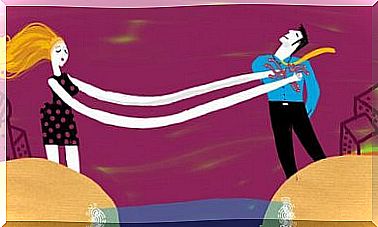What Is Anomie? Find Out Here!

Anomie is a very old concept that was already spoken of in the Middle Ages to describe people “without God or law”. But it was the sociologist Émile Durkheim who began to work on this idea in a systematic way and since then the term has appeared recurrently in sociology.
The word anomie refers to the absence of rules and the tendency to transgress the norms. This situation can take place at the collective or individual level and is also tantamount to the absence of guidelines or moral values to guide behavior.
Although the concept of anomie originated in sociology, it has also been worked on by political science, anthropology and psychology. In all of these areas, anomie has been associated with criminal or “deviant” behavior, either due to historical circumstances or as part of a process of moral evolution.
Anomie and non-conformity
When we speak of anomie, we also speak of a tension between the collective and the individual. There is no respect for the rules and this is due, in principle, either to the fact that the rules do not take into account the real possibility of a person to respect them, or to the fact that the individual does not succeed to respect them, even if they are reasonable.
For Durkheim, anomie was the result of a rupture or deterioration of social ties. A separation which, in turn, has led to a weakening of solidarity. Thus, if in a given group or in society as a whole, there are no strong links, individuals do not feel they have to respect the rules which give cohesion to the group.
Durkheim pointed out that the division of labor and the division of classes was a form of deterioration of social bonds. They introduce forms of injustice and exclusion, which are then expressed in standards.
These end up being precepts that legitimize situations that go against individuals. This results in great tension, as well as resistance to obeying the rules.
Anomie and frustration
The concept of anomie was assimilated by the structural-functionalist approach, of American origin. In this case, the idea initially worked on by Durkheim was changed and the focus began to be placed solely on the individual.
The starting point was the idea that the collective, because it was collective, worked well. Therefore, if a person was not able to adjust to this, the problem was in him.
Faced with this, many authors stress that if a context proposes norms and models of realization, but at the same time restricts the means or the ways of reaching them, a deep frustration is generated. For example, when you bet on success, but achieving these goals is difficult to achieve through the rules.
Under such conditions, there is not only a weakening of social ties, but also a strong resistance, passive or active. This eventually results in a variety of behaviors including depression, urban violence, crime, and even suicide, among others.

What should or should change?
The question of anomie and respect for the rules is complex. In fact, we can say that in no society are the rules always and fully respected.
If we are talking about the ideal, what should exist is a collective in which the margin of conformity is very wide, while promoting autonomy based on individual ethical responsibility. Such a society is not easy to build, mainly because of economic and social inequality, which also implies unequal opportunities.
At this point, the question arises as to whether, under real conditions, it is appropriate to promote a change of rules or a change of individuals to reduce the tensions that lead to transgression and frustration. The answer is not evident. A realistic perspective would emphasize the importance of adapting to reality, however arbitrary it may be.
This adaptation should not be passive, but rather the reverse : critical and active. This paradox should be addressed, the range of tolerance for frustration, and the strength and willingness to change, to be broadened.









